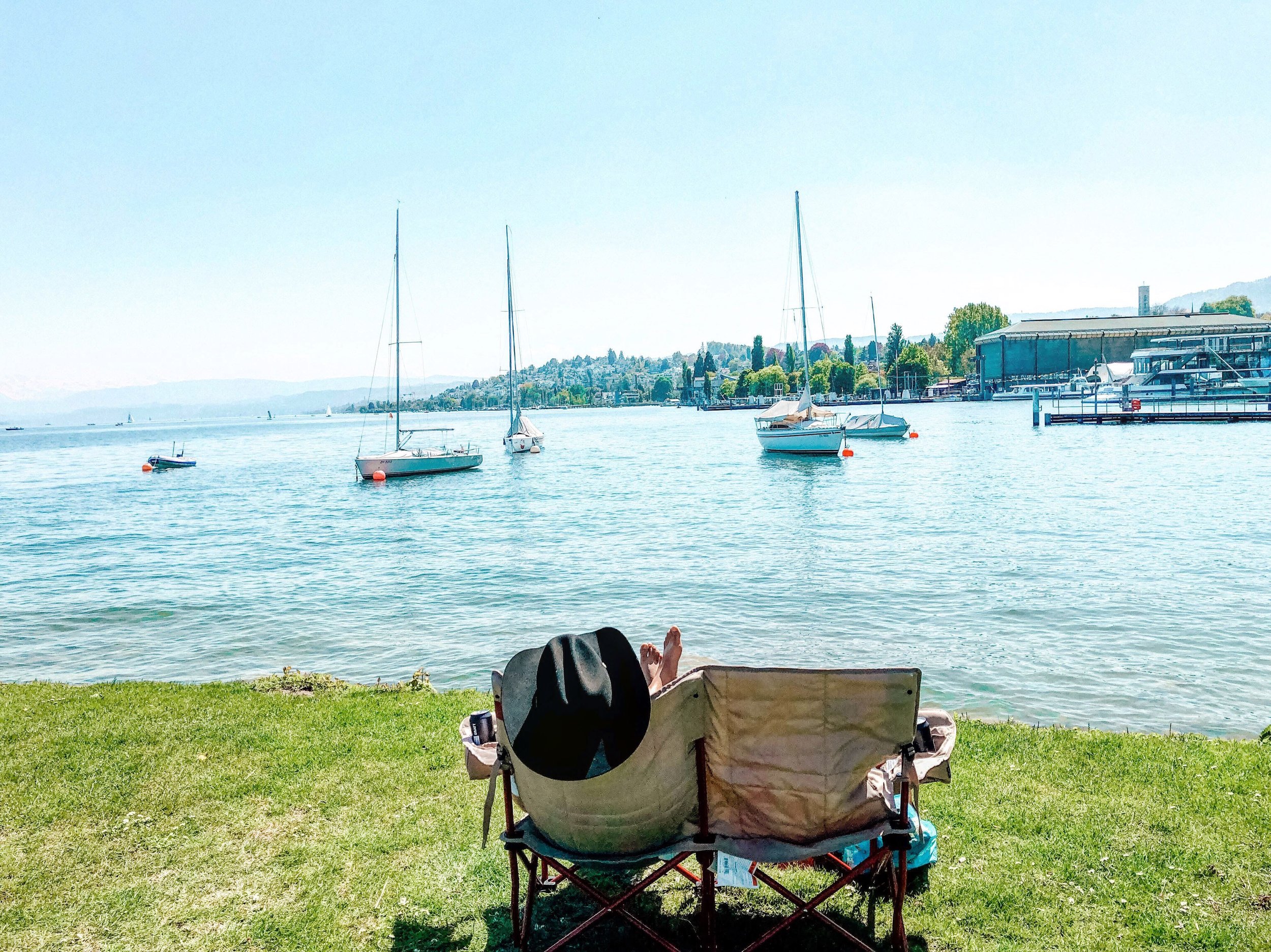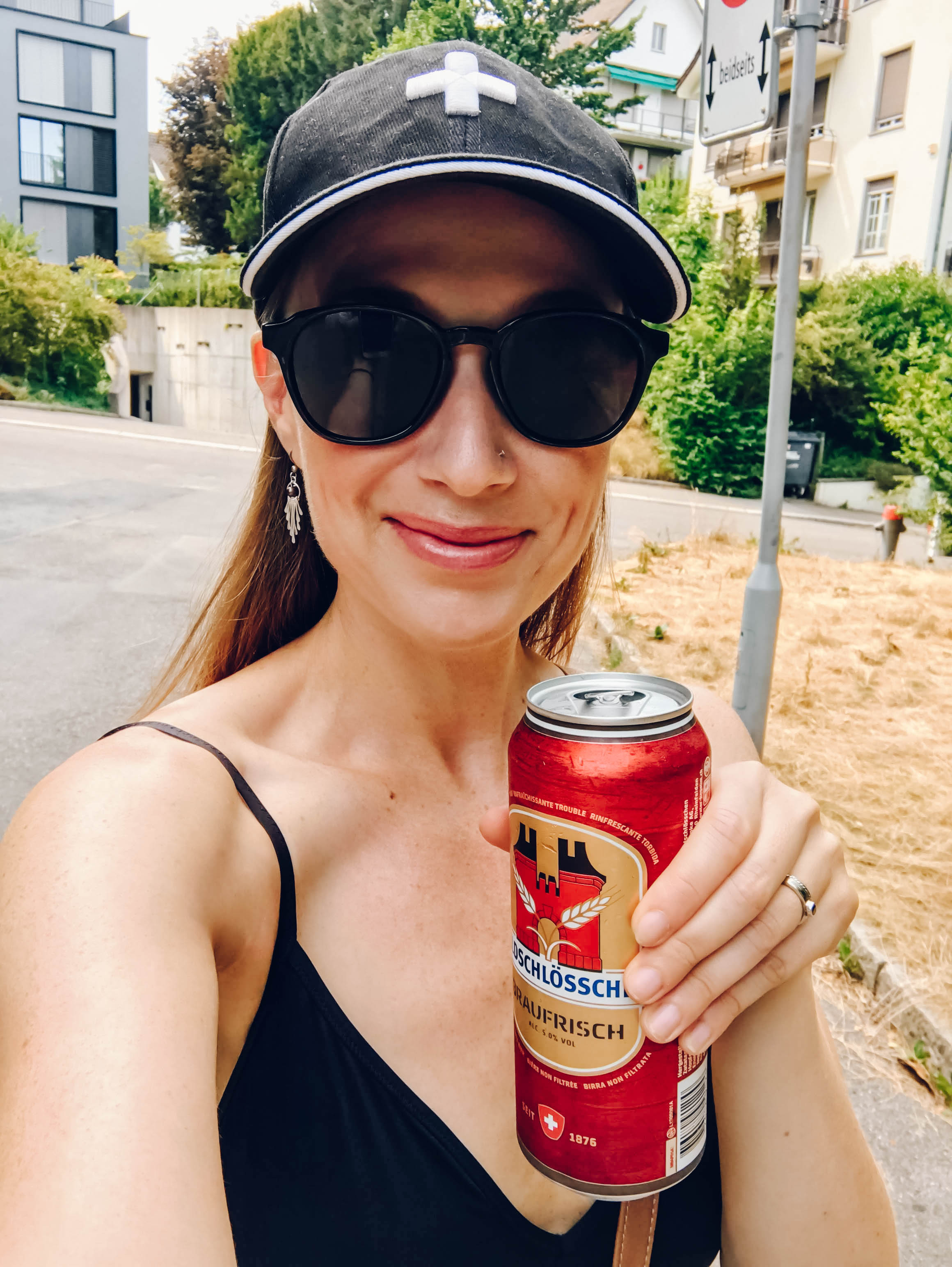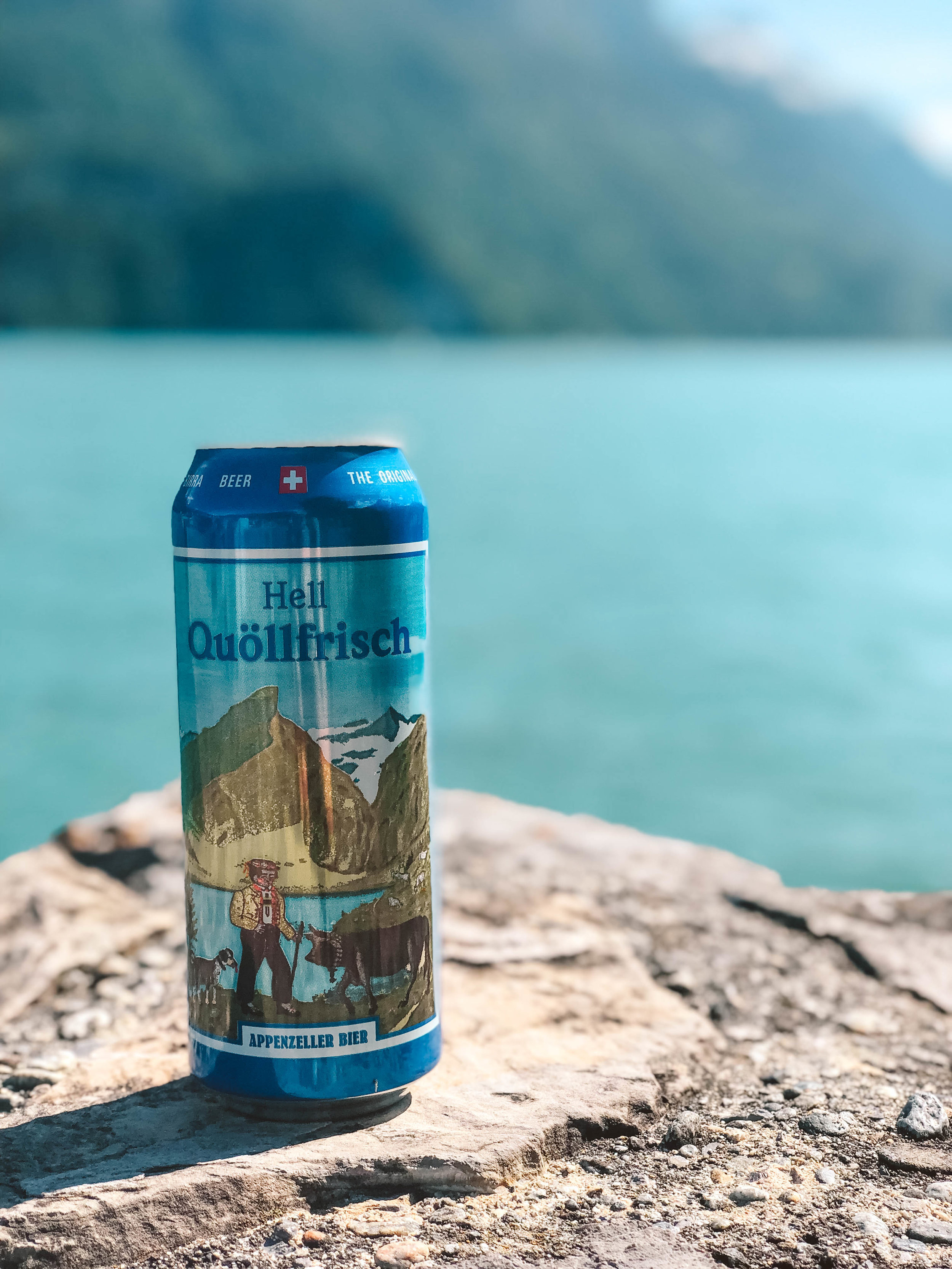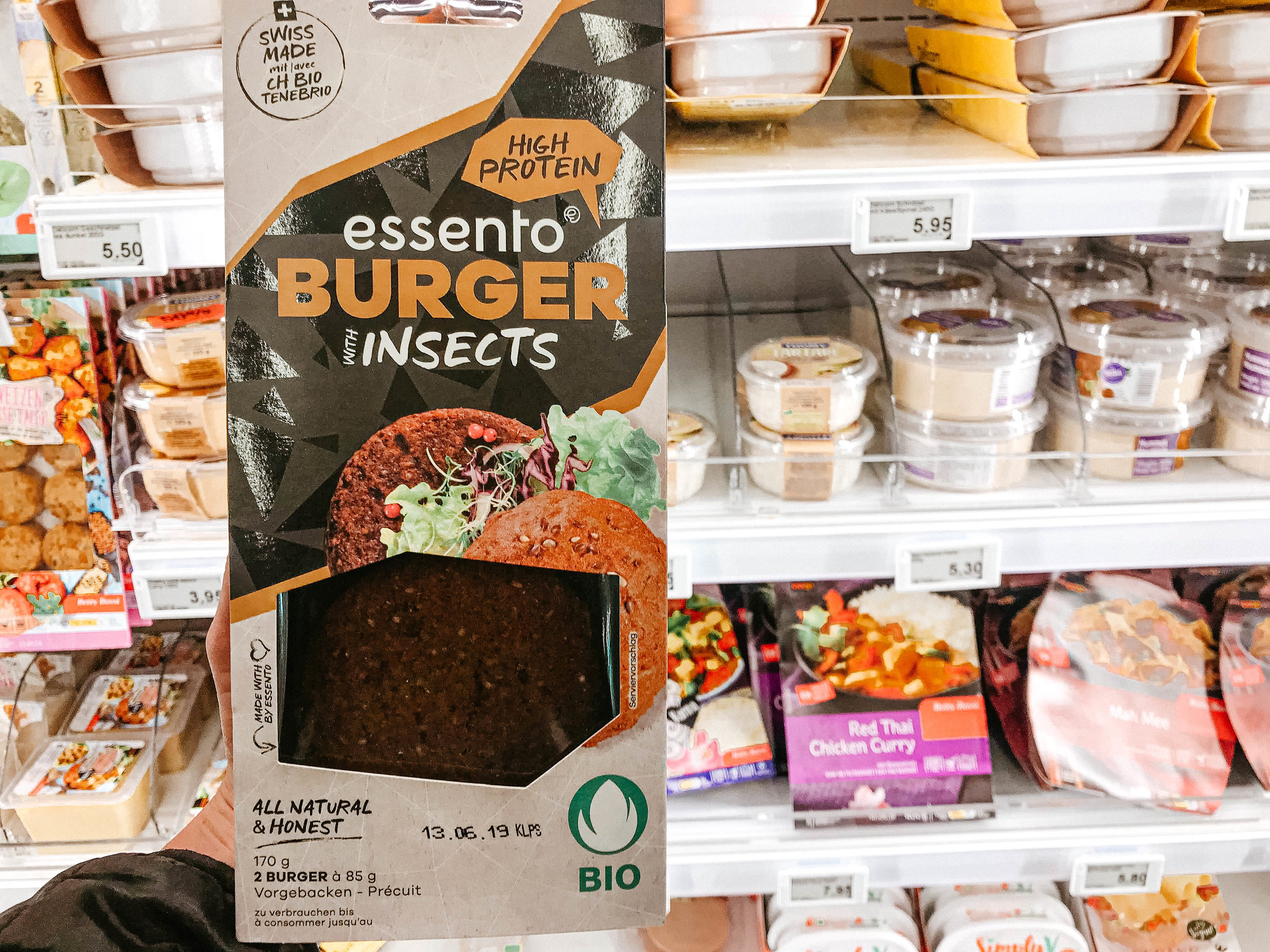Say What?! 8 Unexpected Aspects of Swiss Life
I write a lot about the “unexpected” side of life in Zurich. Is it because while I had quite a few assumptions, the reality was that I had very little knowledge of the country before moving here? Or is it because I think there are a lot of stereotypes about the Swiss? Or just because I find it interesting to learn about life in other countries? All of the above.
As we are approaching our one-year anniversary in July (“expatversary,” if you will), I started thinking about all of the things that really surprised me when we first moved to Switzerland. It’s actually a bit funny writing these out now, because as we have adapted to the Swiss lifestyle, we’ve simply gotten used to most of these things as a way of life. I’ve written about my unexpected favorites, things Switzerland does well, and things they could work on, so this list is a new mix of all three. Just when you think I’ve covered them all, here are 8 more surprising things about Switzerland. Some affect my daily life, some don’t, some things I love and some still leave me a bit bewildered, but they all contradicted a previously held notion in some way. Or - are just plain crazy to me. Either way, enjoy.
BYOB
I might as well start with one of my favorite surprises: there is no law prohibiting open-containers, so drinking alcohol in public is completely legal. Coming from the States, this is a big deal. The only U.S. city I know that has a similar open-container law Las Vegas. And like most things in Vegas, it’s taken to the extreme (this is why we can’t have nice things and why no one can last more than 48 hours in Vegas). I would have never guessed that Switzerland and Vegas would have something in common, but here we are. The thing is though, in Switzerland, this open container law isn’t a big deal at all. Everyone takes advantage of public BYOB, with no side-eying or stigma or excessive public drunkenness included. Switzerland is actually quite relaxed when it comes to booze. It’s all very casual.
It’s not at all uncommon to see people having a beer on the train or tram, or walking through the neighborhood, or up at the top of Uetliberg. If Raunaq and I are going to dinner we might grab a beer to take along with us for the bus ride. I’m pretty certain that the smaller Coop and Migrolino grocery stores specifically stock the little mini wines (complete with an attached cup) specifically to be used as public transportation roadies. It’s the best. In my head, I like thinking that Switzerland is saying, “Hey. I know we are an expensive country. So here is a small gift we are giving you. The gift of BYOB. Use it well.” And everyone does!
Pro tip: BYOB is best combined with all things lake life (see #2)
Oh, and BYOB means “bring your own booze.” Do people still use this abbreviation, or is my elder millennial showing?
Summer lake life
Yes, I talk about this all the time, but we just got our first glimpse of summer weather last weekend and it got me so balls-to-the-wall excited about lake life that I’m bringing it up again. I still remember when Raunaq and I arrived in early July last year to a city pulsing with life. It was positively electric. And positively surprising. Nobody told us that Zurich is the best summer city around. It honestly may be Europe’s best-kept secret.
Because: lake life. I spent the first twenty years of my life in San Diego and Los Angeles, and I’ve never seen a city embrace the water quite like this. People say that Zurich comes alive in the summer, and it’s true. It’s one big summer party. Lake life heavily influenced where we decided to rent an apartment (by the lake, natürlich), and as much as I have embraced the full spectrum of seasons, it’s these three months that I look forward to the most. I feel like a kid on summer vacation. Maybe part of the feeling is because it is so unexpected and different from the rest of the year. Maybe because it feels fleeting and ephemeral, only lasting those few precious months. Maybe because it’s still undiscovered and feels truly local. Maybe because it’s so beloved, and people are squeezing out every bit of summer they can. It’s the best. Of course, I’m biased to prefer Zurich, but pretty much every city here has their own version of lake summer life. Swiss lake life for life.

Personal Request: FRIENDS AND FAMILY. PLEASE COME IN THE SUMMER SO I CAN SHOW YOU THIS LIFE. I feel like some of you might be skeptical and/or don’t believe me, and plus, you all keep on visiting in the late winter or early spring when lake life isn’t a thing yet (which I don’t really mind, because I love having visitors come to my new city so I can show it off, but still). Come in the summer, I’ll show you a good time. Plus, we can hike.
The concept of privacy doesn’t apply to the garbage
Man, I talk about garbage on this blog far more than I ever thought I would talk about garbage. But the ways that cities decide to deal with waste are all so interesting! And I am a loud and proud supporter of the Swiss garbage system. For those who are new: garbage in Switzerland is not free. The trash bags are government-issued and expensive (in Zurich they are called Zuri-Sacks and cost about $2 per 35L bag), but all the recycling is free, incentivizing everyone to only put legitimate trash in the Zuri-Sack and recycle/compost everything else.
You may be thinking - cool, but OK, how can they enforce that you are using the right bags or throwing away the right things? Well. As part of my Daily Life in Zurich Integration class, we did a field trip to Hagenholz, one of the main trash incinerator centers for the city of Zurich. And we were told that if you use a non-Zuri Sack, or if your bag always weighs heavier than 35 liters (or whatever volume of bag you use), then the trash collectors will GO THROUGH YOUR TRASH to find any sort of identification so that they can send you a fine. The same thing will happen if the neighbors call the cops because they see you use the wrong bag. Which apparently happens. I’m sure this all goes on your bad Swiss record, too.
Listen, don’t break the rules. Like I said, I 100% support the trash system here. The overall policy of making each citizen responsible for their individual waste disposal is very sound and advantageous to the society as a whole. Very efficient, very logical, very Swiss. The Zuri-Sacks are expensive because it subsidizes the system, especially the environmentally-friendly high-tech trash incinerators (those filters that triple-clean the residual smoke released into the city air does not come cheap), and hello, you should be recycling and composting! It’s 2019. But isn’t there a privacy violation here? Do you throw away those rights along with the trash? This is how identity theft happens! I guess there needs to be some way to enforce this, but it throws me every time I think about the fact that it’s legal to go through someone’s trash.
Bugs! Horsemeat! Oh My!
Besides cheese and chocolate, the Swiss aren’t really known for their cuisine (sorry!). I love fondue as much as the next person (melted cheese and bread for dinner, what’s not to love?), but let’s be honest, sausage and schnitzel and rösti aren’t exactly the reasons people come visit. Furthermore, meat and potatoes aren’t necessarily groundbreaking food choices. However: when we arrived, there were a few things being sold in the grocery stores and markets that made me do a double-take.
First, horse meat. In Switzerland, it’s legal to sell horse meat. I know, in theory, this shouldn’t be in all that surprising. In theory, eating horse meat is no different from beef or pork or chicken, and pigs are just as intelligent, if not more so, than horses. And in theory, this shock is because I’m simply not culturally accustomed to seeing horses in the meat section. It’s difficult to think of a completely rational argument for why certain animals are deemed acceptable to eat while others aren’t. But I don’t know, irrationally, it was still quite surprising to see. And yes, the shock of it all has worn off, but still...horsemeat!
And then there are insects. Selling insect products as food became legal in Switzerland in 2017. So far, three species are permitted: mealworms, crickets and grasshoppers. Apparently, crickets taste like chicken (of course they do), and mealworms have a nutty flavor! Now this, I can get behind. I would absolutely eat insects, and am very supportive of Switzerland leading the charge of introducing new forms of sustainable protein to the general public. Bring on the mealworm burgers and cricket nuggets. And when you think about it, it’s really not that far of a cry from snails and French escargot. In fact, I read that these insect food brands were initially pricing these insect products high, so that they come across as a gourmet food and thus, more attractive. Welcome to the future of food!
A mandatory military service
A country famous for its neutrality, and for generally not meddling in other countries businesses, has a mandatory military service? Yes, all men in Switzerland are required to report for duty. Obviously, this doesn’t apply to our life at all, but I thought it was an interesting nonetheless. In most cases, recruits do 18 weeks of boot camp, and then they are required to spend several weeks in the army every year until they have completed a minimum of 245 days of service. There’s also an option for civilian service if there is a conflict or conscience or they are otherwise unable to perform military service. I don’t know many other European countries that have a compulsory service requirement. What’s not surprising, of course, is that it is only required for men. This topic - both conscription in general, and whether women should be included - is, as expected, a hotly debated issue.
The mandatory service is also related to something I touched on in another post (gun control, one of the 5 things the Swiss do well) that even though Switzerland has some of the highest rates of gun ownership in the world, if you compare it to say, the United States, there is hardly any gun violence. When a man leaves the Swiss army, he is allowed to keep his unloaded service weapons at home ( the ammunition itself is strictly regulated). It’s become less common over the years, but still, this is one of the reasons that gun ownership in Switzerland is higher than most people assume. Which was also quite surprising to me!
Dogs are not exempt from the rules
It took me a little bit to put my finger on what was missing, in this city full of dogs: barking. I don’t think I have heard a single dog bark since we moved here. And that is because, friends, dogs are not exempt from Swiss rules.
Sadly, we travel too much to justify having a dog, but if we ever did want one, we will need to be ready for regulations. Lots of regulations. In Switzerland, dogs are required to be microchipped and registered with the city government. Owners need to pay an annual doggie tax, and if you want to bring your dog on public transit, they need their own little doggie ticket, too (no fare-ditching Fido’s allowed). Certain breeds of dogs are completely banned, depending on where you live. In Zurich, 8 breeds are on the blacklist, mainly the dogs with so-called “bad” reputations, like terrier and pitbulls, along with mixed breed dogs whose DNA shows 10% of one of the banned breeds (this really bugs me - stop propagating stereotypes, Switzerland!). Clipped ears and tails aren’t allowed. There is mandatory dog training to ensure your dog is properly Swiss. And yes, Swiss dogs are incredibly well-behaved. Most of the time, this makes Raunaq very sad, since it means dogs don’t run up to us and say hello when we pass one on the street. He’ll look longingly (maybe whispering a “Hi, Baxter!”) as the dog walks right by, dutifully following its owner.
In retrospect, I guess this shouldn’t be that shocking because if one assumption about Switzerland holds true, it’s the sheer amount of rules and regulations. But, I was surprised to see that all these rules extended to dogs. Cats, on the other hand, get a free pass. No wonder they look so haughty lounging around like kings on the sunny patios.
The Swiss Burning Man, and other festivals
More like Burning Snowman. Did you know that every year the people of Zurich burn a snowman in a gigantic bonfire in the middle of the city? Sechseläuten is a Zurich tradition, dating from the 16th century, that celebrates the end of winter and beginning of spring. Every April, there is a massive parade, where representatives from the 25 medieval guilds make their way through the old town, some riding on horseback, all in traditional costumes. A few of these guild costumes are slightly...questionable (I’m looking at you, Swiss “Spice Guild”, with your camels and heavy-handed “bronzer.” Hm).
The processions culminates at Sechseläutenplatz, where a huge crowd is surrounding a bonfire topped by the Böögg, a snowman effigy that symbolizes winter. At precisely 6pm, the fire is light, and guildsmen and horses gallop around the fire in a frenzy as everyone anxiously awaits the Böögg to explode. The snowman’s head is packed with firecrackers, and the myth is that the faster the Böögg burns, the longer and hotter the summer will be. Sadly, this year the Böögg took nearly 18 minutes to explode, which forecasts a mediocre summer season. Sigh.
Guys, this fire is BIG. I’m sure all the appropriate precautions are set in place, but it’s a massive fire! In the middle of the city! With horses! And lots of kids around! On a Monday! What?!
After, everyone is invited to roast bratwursts on the embers, for the world’s largest public barbecue. I remember when we first moved here, Raunaq kept on talking about this “exploding snowman festival.” Well, we went this April, and it was just as crazy as we anticipated. The video is from 2018, but I think you’ll get the gist.
And then there is Faschnacht (Swiss Carnival). I could do an entire post on every Swiss city’s version of Fashnact, because each one has their own specific traditions, but in general: it’s a festival where chaos and merriment reigns, people dress up in outlandish costumes, and Guggenmusik (brass bands that are intentionally played loud and off-tune) fills the streets. Raunaq and I plan to attend the Tschäggätta, a version of Carnival in the remote Alpine village of Loestchental next year. Villagers dressed as the Tschäggättä wear wild fur outfits and terrifyingly grotesque masks, and roam the valley to chase and frighten anyone out in the streets. I’m picturing it as a very scary real-life rendering of “Where the Wild Things Are.”
I anticipated festivals, but not festivals like this. Maybe more traditional or religious ones. But these festivals - and there far more than I can talk about here - show a fun, quirky and downright wild side of Switzerland I simply didn’t expect.
Switzerland is not Sweden
Surprise!
OK, a bit of a joke here, but these countries get mixed up more than you would think. No, Switzerland and Sweden are not the same. Yes, they both have high standards of living, beautiful scenery, and country names that start with “Sw,” but that’s about it.
I will admit that in one sense, I am guilty of this one. Before moving to Zurich, I assumed that Switzerland was as socially progressive as well, Sweden. But as Raunaq and I quickly learned, Switzerland does not have the same sort of high-tax, broad social welfare system that is nearly synonymous with Scandinavia and some European countries. Swiss healthcare, while very high-quality and far better than US healthcare policy, is private and expensive. And while Switzerland is so progressive in some areas (one of the first major cities to use clean needle exchange and methadone maintenance treatment for dug addicts), it is shockingly - shockingly - far behind in others (don’t even get me started on when women got the right to vote).
This feels like an appropriate end to the list. Because Switzerland is not Sweden. Switzerland isn’t any country but Switzerland. It’s fiercely independent and unique and old and new and honestly, doesn’t really seem to care what anybody else thinks of it. And I feel lucky that we have the opportunity to live here, and uncover the surprising side of Switzerland ourselves.













